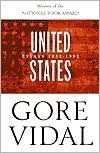
The Partly Cloudy Patriot
Book Description
Patriotism has never felt so personal. In "The Partly Cloudy Patriot," Sarah Vowell weaves together sharp wit and poignant storytelling, capturing the turbulent emotions of a nation at odds with itself. With her signature blend of humor and heart, Vowell drags readers through the chaos of modern America, exploring the conflicts that shape identity and belonging. From the absurdity of political spectacles to the tender threads of family connection, every page grips the heart tighter. Can love and laughter thrive amidst uncertainty and dissent? What does it truly mean to be a patriot in a partly cloudy world?
Quick Book Summary
"The Partly Cloudy Patriot" by Sarah Vowell is a witty and personal collection of essays that navigate the complexities of American identity, patriotism, and dissent. Vowell uses humor and memoir to dissect the quirks and contradictions within American history and politics, drawing parallels between the nation's founding ideals and modern realities. Her sharp observations question what it means to belong to a country where ideals and behaviors often diverge. The book balances irreverence and thoughtfulness, blending personal anecdotes, historical insight, and satire. Vowell's reflections on her own experiences, family, and national events create a tapestry that explores both the frustrations and the endearing qualities of civic life. Ultimately, she crafts a heartfelt meditation on loving a flawed nation, suggesting that true patriotism lies not in blind allegiance but in thoughtful engagement and affectionate critique.
Summary of Key Ideas
Table of Contents
Redefining Patriotism with Humor and Critique
Sarah Vowell navigates the ambiguous landscape of American patriotism with her trademark humor and insight. She challenges traditional definitions of patriotism, suggesting that true love of country involves scrutiny and self-awareness rather than blind loyalty. By interweaving satire and autobiographical anecdotes, Vowell deftly exposes the contradictions inherent in American civic life, showing how the nation’s ideals often butt heads with messy reality. Her often humorous discomfort with grand displays of patriotism reflects a deeper skepticism toward unquestioning nationalism.
The Intersection of Personal Identity and American History
Vowell embeds her own journey within a broader historical context, using tales of historical sites, such as the battlefield of Gettysburg, to reflect on America’s foundational myths. She explores how her identity as a citizen and as an individual is shaped by America’s complicated legacy of heroism and hypocrisy. Her fascination with the country’s oddball traditions and historical quirks serves to connect her personal story to the larger national narrative, highlighting the ways in which history is both personal and collective.
Family, Memory, and the Search for Belonging
Family and memory play central roles in the collection, as Vowell illustrates how familial relationships mirror our relationship to the nation. She draws parallels between the arguments and reconciliations within her own family and the broader American cultural debate. Through stories about her father and sibling, she considers how memories, both cherished and contentious, become the threads that tie us to a larger belonging, making the abstract idea of patriotism tangible and intimate.
The Irony and Absurdity of Political Spectacle
Political absurdity lies at the heart of many essays, as Vowell lampoons the spectacle and pageantry of modern American politics. Whether recalling quirky local rituals or critiquing televised debates, she underlines the performative aspect of civic life. The tone remains irreverent yet affectionate as she dissects the ways Americans engage in, and are sometimes bemused by, their own political traditions and divisions. This layered approach reveals both the comedy and tragedy inherent in national discourse.
Loving a Flawed Nation
Through affection and critique, Vowell argues that it is possible — even necessary — to love a country imperfectly. Her essays suggest that responsible citizenship requires both laughter and dissent. By balancing reverence for America’s ideals with candid acknowledgment of its shortcomings, she crafts a nuanced perspective on belonging. In the end, Vowell’s partly cloudy patriotism is not a sign of apathy, but a testament to the messy, heartfelt engagement that true democracy demands.
Download This Summary
Get a free PDF of this summary instantly — no email required.





